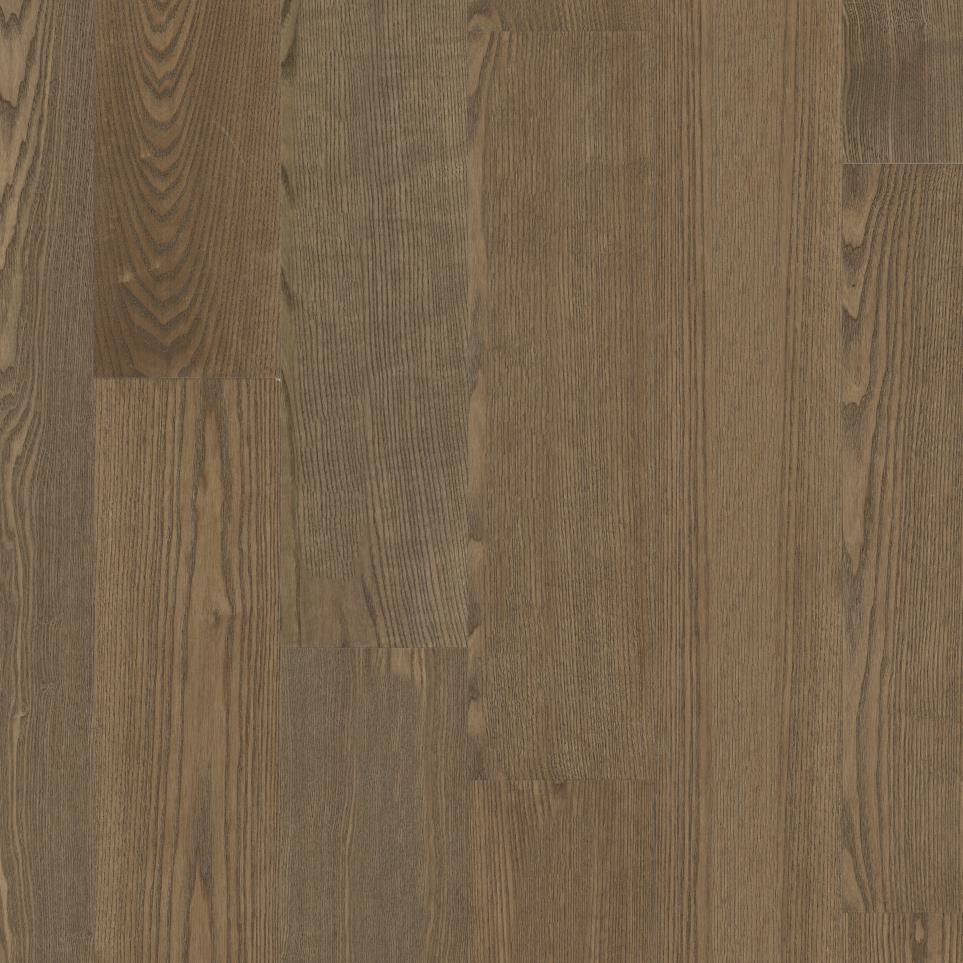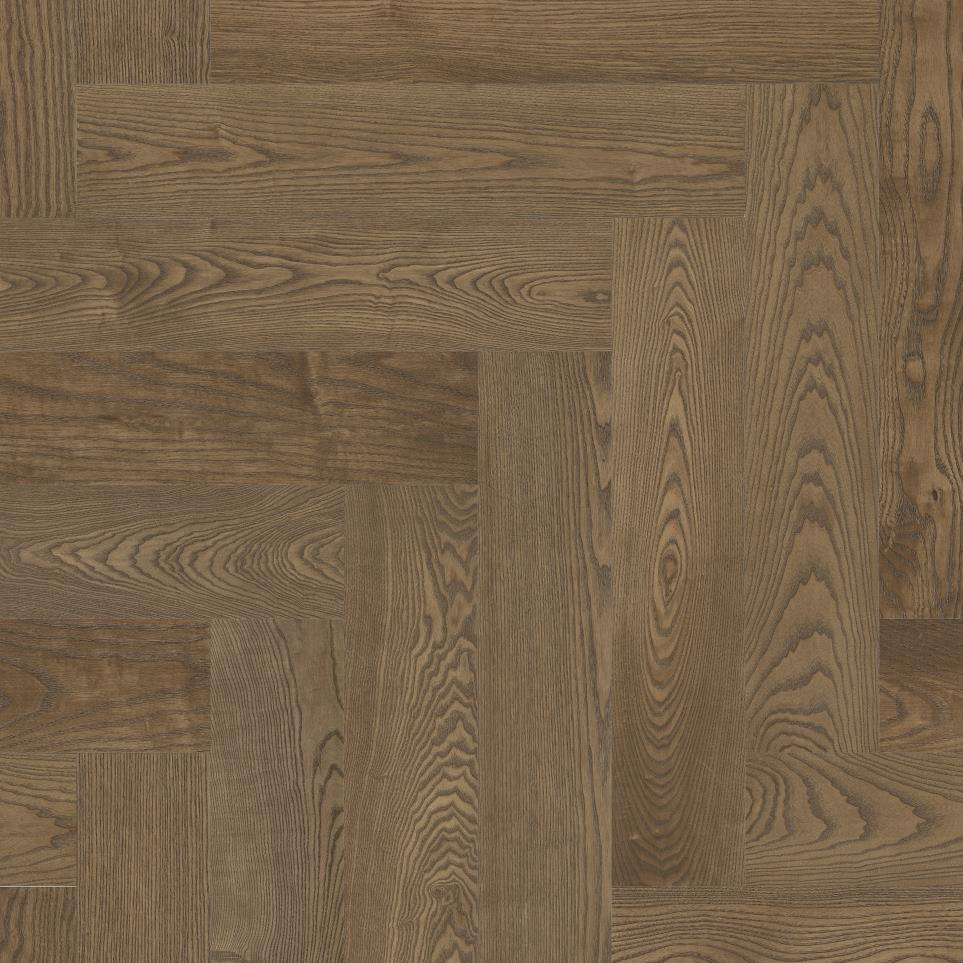Ash Hardwood: A Popular Flooring Choice
Whether you're replacing lackluster flooring in your latest home renovation or picking out your dream floors for the forever home you're building, the appeal of solid ash flooring is hard to deny. With ash, you get the benefits that come with all solid hardwood floors, like supreme durability and immediate character, plus the beauty of ash hardwood itself. This impressive species does more than deliver a popular modern flooring look. It's also used in the construction of baseball bats, tools, and guitars!
Appearance
Are you a fan of contemporary styles that offer warmth through cool, light tones? Then ash flooring may be the ideal choice for you, with planks that can range from a creamy pale brown to a light yellow and feature subtle beigy-white streaks in the grain. The hues can vary slightly based on how the tree is cut: from the inner trunk known as the heartwood, or the softer outer layers referred to as sapwood.
Advantages and Disadvantages of Ash Wood Flooring
You're drawn to the ash hardwood products in the showroom, but you're wondering if it's really the best hardwood choice for your family's day-to-day lives. Here are a few benefits and considerations to keep in mind as you consider the options:
- Pro: It's tough. If your house is full of on-the-move critters and energetic children, you'll appreciate the resilience of this particular hardwood. Plus, ash wood hardness ranks higher than a few other options, like oak and beech.
- Pro: It absorbs shock well. You probably don't realize how nice a more shock-absorbent hardwood is until you walk on one with less elasticity. There's a comfort to each step, plus accidentally dropping a heavy pan is less likely to leave a mark.
- Pro: It's beautiful. Ash hardwood flooring highlights the species' lighter wood, which easily brightens up every room it's in. If you're looking for a more contemporary vibe, white ash flooring can deliver.
- Con: It's less available in wide or long planks. Unfortunately, ash hardwood across the US has been impacted by an invasive beetle called the emerald ash borer since 2002. To limit the devastation, ash trees are harvested earlier in their lives, so they're not able to reach the heights and widths necessary for longer, wider planks. The good news is that you can find wide plank ash wood flooring as engineered wood if that's the look you're going for.
- Con: It's not waterproof. Honestly, this disadvantage is true of all solid hardwood floors—wood reacts to liquid. That said, you don't have to cringe if your glass spills at dinner and water ends up all over the floor. The key is to quickly clean up any moisture, and the manufacturer's care instructions can guide you.
Is Ash Hardwood Durable?
The inherent resilience and durability of ash wood flooring come from its cellular makeup, which makes it a dense plank that's able to weather a good amount of traffic. You can easily use it in your kitchen, utility zone, and hallways without worrying about minor dings, scrapes, and scratches from your on-the-go teenagers or messy toddlers. Ash hardwood flooring also has a natural give to it, plus it won't get rough or split years down the line.
How to Maintain Ash Hardwood
Keeping your ash flooring in tip-top shape requires a minimal amount of time and effort, all things considered. It starts with routine sweeping once a week or so, or using a vacuum on a hardwood setting. Either method will pick up the dirt, pet hair, and dander that's accumulated.
If you face an unexpected spill while cooking or during your kids' snack time, no worries! Just follow the cleaning instructions provided by the manufacturer, but do it quickly. You don't want moisture to sit on the surface of your new white ash flooring for any length of time.
Lifespan and Installation
The last thing you want to do is go to the trouble of selecting a new floor, have it installed, live with it for a few years, and then need to replace it. Thankfully, with ash hardwood, you can put that fear to rest! Like all commercially available hardwood, white ash flooring can thrive for several decades under your roof, as long as you keep a few important factors in mind.
To ensure that your ash flooring has a long life, make sure to:
- Select a high-quality product
- Opt for professional installation, which will ensure all the necessary steps are taken and your warranty stands strong
- Regularly clean your ash hardwood flooring and immediately address any spills based on the manufacturer instructions
When you're comparing your options, be sure to ask your local Flooring America expert for more details on the warranty protection available with each product.
Ash Hardwood Flooring FAQs
- Is solid ash wood durable? Yes! You can rest assured that ash wood flooring will withstand the daily wear and tear of your family because of its dense composition. Ash wood hardness also translates to more scratch resistance than softwood species, so you don’t have to worry about your dog’s paws when he’s invested in demolishing his latest toy.
- Is ash harder than white oak? No, it's actually the other way around. White oak is harder than ash, but by a minimal amount. Both ash and oak make lovely hardwood flooring options, with ash hardwood flooring boasting a little more elasticity that will absorb shock and white oak resisting moisture slightly better.
- Is ash a good hardwood floor? Yes, ash makes a fabulous hardwood floor in the right places. Thanks to its durability, ash hardwood flooring can easily hold up to your kids' incessant trips to the kitchen, as well as all the bustling activity between the living areas and bedrooms. Its density provides enough water resistance to fend off small accidents with the caveat that it's cleaned up ASAP. Where it doesn't excel is in consistently wet areas or rooms with a lot of moisture, like bathrooms or basements.
- Is ash wood a hardwood? Yes, ash wood is one of many species of hardwood. When it comes to actual hardness, ash is harder than red oak, beech, and heart pine.

